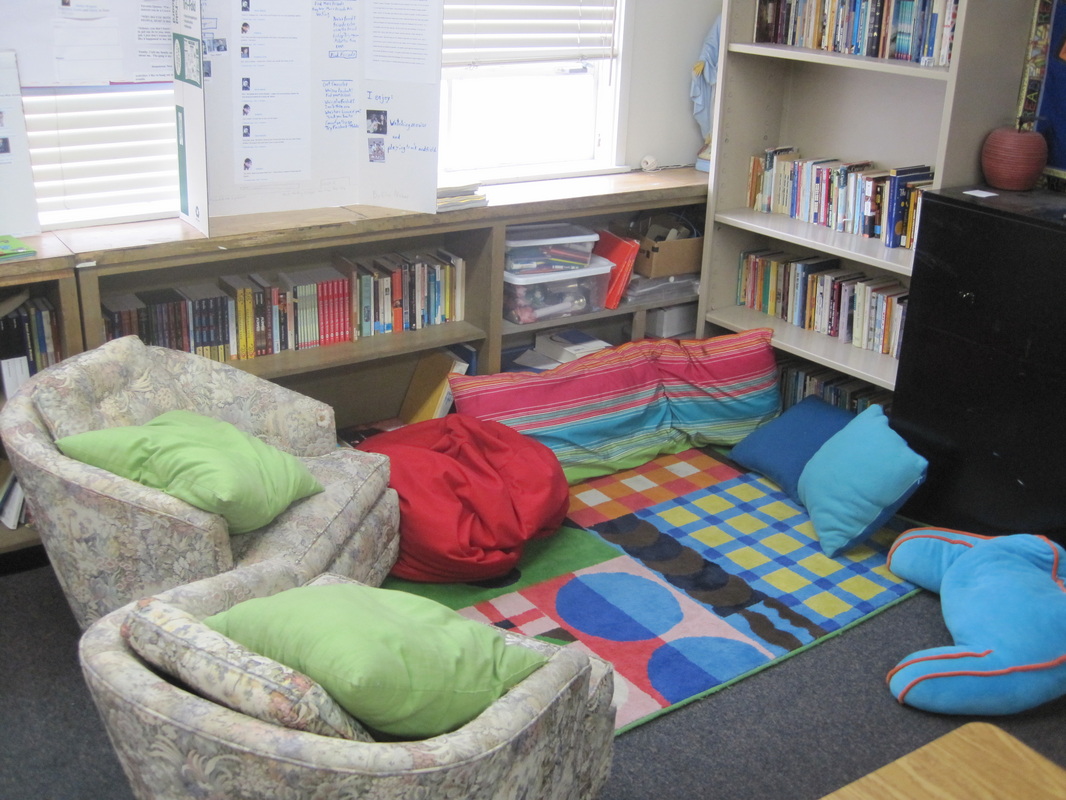These days, almost every school system has some semblance of a ‘gifted program’ in one or more of the various grade groupings. Usually these are designed to challenge bright students even further with enrichment topics that often go beyond the ‘normal’ curriculum. Often, these are ‘pull out’ programs held at certain intervals during the weekly schedule. And, they can, of course, be an excellent service for this segment of the student population.
Back in the day, both of our own children were occasionally participants in various of these programs. As a result, at one of the Middle School Parents Nights one year, my wife and I found ourselves visiting the classroom used for this group each week.
In general, I remember being quite impressed. I don’t many remember specific details, but there were things like soft chairs and couches spread informally around the room, tables to work at, resources to check, and so on. It was a most inviting environment in which it would have been fun to learn.
In passing, I remember thinking “Wow, who wouldn’t learn better in this environment?” Later, while driving home, the profound implications of that ‘passing thought’ hit me hard: “Who WOULDN’T learn better in this environment?!”
Yes, yes, I’m painfully aware of the frustrating practicalities and restrictions at stake here but think about that. Why would we suppose that only ‘gifted kids’ (whatever that means) would profit from a comfortable, inviting environment in their classrooms?!
I’ve lately come to call these suddenly obvious moments of broader perspective shifts Upon-Further-Review moments. Those instances when something jogs you to realize that certain ideas carry a larger perspective than might have been intended. I had several of those in my career.
I had another such moment recently while preparing my previous column for this space. You may recall that we were discussing an article that was offering tips to educators on how to help students who are procrastinators. I had related how some of the further elaboration contained in those tips might have helped me a little as a procrastinator, but that none of them would have ‘cured’ me of those procrastination habits.
As a quick reminder, I’ll re-list the headings of the tips that were in the article.
- Spread deadlines out.
:max_bytes(150000):strip_icc():format(webp)/ways-teachers-can-help-students-succeed-8082_final-230da3dc42e448a2a6859f3a1ca15c8a.png)
- Provide supportive feedback.
- Teach time management and study skills.
- Be mindful of workload.
- Have clear instructions and examples.
As I was writing this, something caused me to step back and look at those tips from a distance. Do you see it too?
Is there any one of those tips (with the possible exception of #1) that wouldn’t make a GREAT suggestion for any teacher to use with any student at any level?!
Worse yet, if you think about it, the implication (hopefully unintended) is that teachers DON’T normally do these things (like ‘have clear instructions’) with their students and assignments! Perhaps I’m being unfair, but that implication alone tends to lessen the article’s credibility for me.
Please note this is not a column about either gifted education OR student procrastination. Each of those topics deserve further discussion separately. (Be warned.) Instead, both examples fit under the larger umbrella of educational thinking that, for whatever reason, became narrower than probably expected..
We have repeatedly stressed here how complex and interrelated educational issues are. As educators tackle these issues, it’s sometimes hard not to get too narrowly focused on a particular solution to a particular problem or goal. Stepping back and being alert for broader perspective ‘Upon-Further-Review’ moments can help with the bigger picture.
Comments are closed